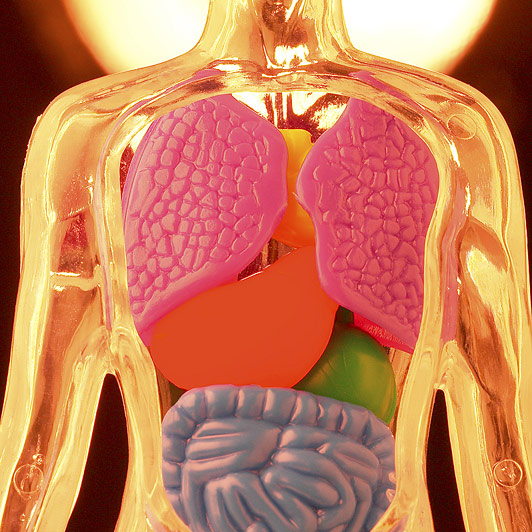
THURSDAY, May 20 (HealthDay News) — People taking cholesterol-lowering drugs called statins may be at heightened risk for liver dysfunction, acute kidney failure and cataracts, British researchers report.
Statins, which include the blockbuster drugs Lipitor, Pravachol, Crestor and Zocor, are recommended for patients with high cholesterol. Studies have shown that these drugs are effective in reducing the risk of heart disease and heart attack.
While the drugs have long been linked with a raised risk for muscle problems, the new study involving over 2 million patients found other “potential adverse effects of statins, namely myopathy [muscle problems], acute renal [kidney] failure, liver dysfunction and cataract, and shown that two of these have a dose-response effect,” said lead researcher Dr. Julia Hippisley-Cox, professor of clinical epidemiology and general practice at the University of Nottingham.
On the more positive side, the study found no link between statin use and risks for a wide range of cancers (including stomach, colon, lung, renal, breast or prostate malignancies), as well as no connection to Parkinson’s disease, rheumatoid arthritis, blood clots, dementia or fractures.
And experts say that, given the drugs’ well-known benefit in cutting heart disease risk, the new findings are no reason for patients to shy away from statins.
The report is published in the May 21 online edition of the BMJ.
For the study, Hippisley-Cox and her colleague Carol Coupland, an associate professor in medical statistics, collected data on more than 2 million people, including almost 226,000 patients who were new statin users. Among these patients, they looked for adverse outcomes from January 2002 through June 2008.
As noted in previous studies, statin use was also linked to a higher risk for moderate to serious muscle woes. And they found that the risk of acute kidney failure and liver dysfunction rose as the dose of statin increased.
But the popular pills had benefits, too. Hippisley-Cox and Coupland found that for every 10,000 high-risk women treated with statins, there were about 271 fewer cases of the number one killer, heart disease, and eight fewer cases of esophageal cancer.
However, among those same 10,000 women, statin use would be linked to 74 extra patients who would develop liver dysfunction, 23 who would go on to acute kidney failure, 307 who would develop cataracts and 39 patients who would develop muscle troubles. For men the findings were similar, except rates of muscle disease were higher.
These problems were similar for all the various statins taken, with the exception of Lescol, which seemed to bring a higher risk for liver dysfunction compared to the other medications.
The risk for adverse effects lasted as long as the drugs were being taken, but were highest during the year when treatment was initiated, the researchers found.
Dr. Alawi A. Alsheikh-Ali, a consultant cardiologist at the Institute of Cardiac Sciences at Sheikh Khalifa Medical City in Abu Dhabi, United Arab Emirates, and coauthor of an accompanying journal editorial said that, overall, “the findings of the study are reassuring.”
The muscle and liver side effects are largely reversible, and statins do not appear linked to cancer, he said. “When the muscle and liver side effects are balanced against heart attacks and strokes, which are prevented by statins, the equation favors using statins in people who are at risk for heart attacks and strokes as recommended by current professional guidelines,” Alsheikh-Ali said.
The study emphasizes that statins are generally safe, but like any intervention in medicine are not entirely free of side effects, he added. “This supports but does not change current practice.”
And it is only wise that statins be prescribed in patients most likely to benefit from them, Alsheikh-Ali stated. “The present analysis should not be used to scare off current statin users or deny people at risk for heart attack or stroke the benefits of prevention with statins,” he said.
Another expert, Dr. Gregg C. Fonarow, a professor of medicine, and director of the Ahmanson-UCLA Cardiomyopathy Center at the University of California, Los Angeles, also pointed out that the study only found an association between statins and these side effects — it did not prove that they caused the problem.
“Statin medications have been demonstrated in multiple, prospective, randomized placebo-controlled clinical trials involving tens of thousands of men and women with or at risk for cardiovascular disease to prevent heart attack, strokes and premature cardiovascular deaths,” Fonarow said. “These well-controlled trials have also demonstrated that the benefits of statin therapy greatly outweigh the potential risks.”
People with, and at risk for, cardiovascular disease that are being treated with statins “should continue statin treatment and those not treated should discuss with their physician whether statin therapy, together with lifestyle modifications, should be initiated,” he said.
More information
For more on statins, visit the American Heart Association.

